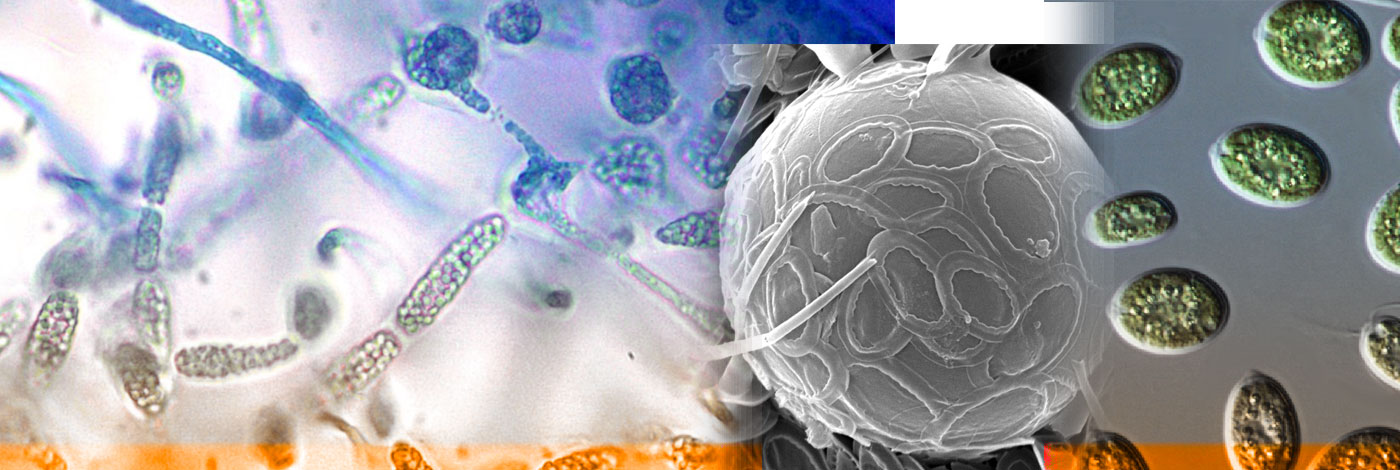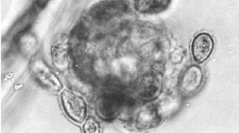

 Cryptogamie, Algologie
24 (2) - Pages 117-131
Cryptogamie, Algologie
24 (2) - Pages 117-131Fourteen culture isolates of freshwater acrochaetioid algae from distinct regions around the world were analysed, including the reddish species Audouinella hermannii, the dubious blue-greenish species A. pygmaea, and “Chantransia” stages from distinct taxonomic origins in the Batrachospermales sensu lato (Batrachospermaceae, Lemaneaceae and Thoreaceae). Four isolates (two ‘Chantransia’ stages and two species of Audouinella, A. hermannii and A. pygmaea) were tested under experimental conditions of temperature (10-25 oC), irradiance (65 and 300 μmol photons m–2 s–1) and photoperiod (16:8 h and 8:16 h light/dark cycles). Plant colour is proposed as the only vegetative character that can be unequivocally applied to distinguish Audouinella from ‘Chantransia’, bluegreenish representing “Chantransia” stages and reddish applying to true Audouinella species (also forming reproductive structures other than monosporangia, e.g. tetrasporangia). Some isolates of A. pygmaea were proven to be unequivocally ‘Chantransia” stages owing either to production of juvenile gametophytes or to derivation from carpospores. No association of the morphology of A. pygmaea was found with any particular species, thus it should be regarded as a complex involving many species of the Batrachospermales sensu lato, as is also the case with A. macrospora. We therefore recommend that all blue-greenish acrochaetioid algae in freshwater habitats be considered as “Chantransia” stages of members of the Batrachospermales, and that the informal descriptors “pygmaea” and “macrospora” be used to distinguish the two discernable morphologies. Induction of gametophytes occurred under much wider conditions than previously reported, reinforcing the conclusion that requirements are probably species-specific. Although phenotypic plasticity was in evidence, with temperature, irradiance and photoperiod affecting morphology, no alga showed variation outside the limits based on traditional taxonomic studies. No overall trend was observed for vegetative or reproductive characters in response to temperature, irradiance and photoperiod for all the algae tested, only for specific algae or characters. Effects of temperature and irradiance on morphological characters were more evident, as well as strong interactions between these variables, whereas few differences were generally found in response to photoperiod and irradiance.